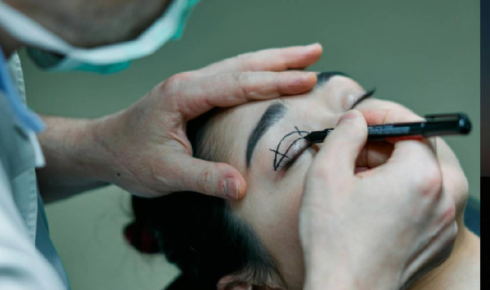
Key Takeaways
- Cosmetic surgery should be approached thoughtfully, with a clear understanding of personal goals, expected outcomes, and associated risks.
- Asking well-informed questions and seeking out board-certified practitioners is vital for satisfaction and safety during any cosmetic enhancement journey.
- Ongoing self-education, psychological preparation, and honest communication help ensure a rewarding experience from consultation through recovery.
Table of Contents
- What Is Cosmetic Surgery?
- Questions to Ask Your Surgeon
- Balancing Expectations and Reality
- Risks and Safety Considerations
- Recovery and Healing Process
- Psychological Preparation
- Staying Updated on Developments
- Key Points for Decision-Making
What Is Cosmetic Surgery?
Cosmetic surgery encompasses a range of surgical and non-surgical procedures aimed at enhancing or restoring a person’s appearance by focusing on the face, body contours, and skin texture. Undertaking cosmetic surgery is frequently a convergence between personal goals and the treatment risks and realities. Pursued procedures must be achieved for personal objectives to be successful, rather than from a desire to meet external expectations.
For those starting their journey or seeking trustworthy resources, clinics offering services like cosmetic surgery Durham NC typically provide comprehensive consultations to address all aspects of care. This includes discussing each procedure’s benefits, limitations, and recovery process. According to research by the American Society of Plastic Surgeons, public interest continues to climb, with over 15 million cosmetic procedures performed yearly in the U.S. This surge reflects increased social acceptance and advances in surgical techniques that offer safer, more natural results. Informed decision-making—rooted in education and transparent conversation—remains essential for anyone considering an appearance-altering procedure.
Questions to Ask Your Surgeon
Cosmetic surgery success relies on the right surgeon. Confirm certification in Jongboard plastic or cosmetic surgery and experience with the specific procedure sought. During the initial consultation, learn about the surgeon’s history with analogous cases, complication and revision rates, and the accreditation of the surgical facility. Formal education and experience, which define a good candidate, and working with complications, post-operative expectations, and lifestyle modifications are critical concerns. Patient-centred care improves satisfaction outcomes. Realistic goals, anamnesis, and expectations, together with the full scope of recovery and aftercare support, should be clearly articulated and encompassed.
Balancing Expectations and Reality
Balanced expectations are perhaps the most pivotal element of concern to patients’ perception of results. While cosmetic surgery has the potential to yield meaningful transformations, it should not be regarded as a cure-all for deeper personal challenges nor a guarantee of achieving dramatic change. Both surgeons and leaders of the industry advocate the necessity of earnest and frank conversation pertaining to achievable and non-achievable goals. A report by the BBC on satisfaction in cosmetic surgery asserts that enhanced patient happiness is observed as the gap between desired outcomes and results decreases.
People respond in various ways after undergoing surgery; some feel an immediate boost in self-esteem and self-image, while others find that they are much more satisfied in the long term when they address their emotional or mental health concerns first. It is entirely understandable if there is a desire for self-improvement, but expressing concerns and expectations with a provider can help ensure that motivations are appropriate and outcomes will meet expectations.
Risks and Safety Considerations
Every single procedure, no matter how small it may seem, has risks associated with it. While procedures have become safer over the years, there are possible risks that a patient should be aware of before proceeding. Some common risks associated with surgery include infection, scarring, anaesthesia reactions, nerve injury, and dissatisfaction with the cosmetic result. In some cases, these might require additional surgery or treatment.
Surgical centres also have procedures like hectic registration that focus on informed consent, which includes detailing the likelihood of some complications occurring and how they would be dealt with if they ever arise. Patients should check the board certification of the surgeon, along with safety measures and the accreditation grade of the operating facility. Paying attention to details before scheduling a procedure greatly increases the chances of safely undergoing the surgery.
1.Thoroughly read all pre- and post-procedure care guidelines.
2.Provide a complete medical history, including allergies and any prescription medications.
3.Do not hesitate to ask “what if” questions. Knowing the plan for any scenario is comforting.
Recovery and Healing Process
Recovery is one of the most important aspects in achieving the desired results, but it is often neglected during the preliminary planning stage. Each surgical procedure comes with its distinct timeline for healing, and scheduling your recovery is just as critical as choosing your surgeon. Optimising recovery experience includes following aftercare instructions, refraining from vigorous activity until one’s body is ready, hydration, proper nutrition, attending follow-up appointments, and reporting any unusual symptoms immediately. While some setbacks like swelling and bruising are normal, most optimal results are achieved by being patient and taking self-care during these phases, after which the body naturally swells and the incisions heal. Following these steps will ensure recovery; focusing on sound nutrition, proper hydration, routine follow-up appointments, reporting any concerns, and active symptom management will further the process.
Psychological Preparation
Cosmetic procedures do, in fact, have a psychological dimension, and emotional fitness tends to be needed for one’s self to be truly satisfied after surgery. After the surgery, the individual might go through anxiety, restlessness, or mood swings, which are commonly referred to as post-operative blues. Self-reflection on one’s motives and mental preparedness is very important, and trying to get help from a counsellor or even close family can assist a lot. Emotions aside, making sure a patient feels ready psychologically tends to lead to better healing during recovery. This general approach can help patients navigate the surgical and recovery process more smoothly.
Staying Updated on Developments
Every other year, new procedures, protocols, and measures designed to enhance patients’ safety are being put forth. The patients need to stay up to date with changes happening in the field. Providers make it their responsibility to keep their techniques up to date so that they have a variety of modern, safe options. The newer noninvasive and quick-to-recover procedures are getting a lot of attention. Knowledge in these areas allows the patients to make certain demands that will be up to current standards for their aesthetics and safety.
Key Points for Decision-Making
1.Make sure the reasons are clear. Ensure they are result-driven and for the right reasons.
2.The procedure and the provider, to the expected outcomes, should be thoroughly detailed in the patient’s research.
3.Consider the advantages against the risks, knowing that each procedure has both.
4.Get your mind, body, and network ready for support for healing and caring afterwards.
5.Stay inquisitive and self-educate, ask detailed questions, seek second opinions, and ask for clarifications whenever needed.
When the patient and doctor collaborate towards achieving the intended goals of the surgery or procedure, satisfaction and safety are almost guaranteed outcomes. The best satisfaction comes from the well-informed decisions anchored on self-assurance tempered with realism, bolstered by flexible learning and frank dialogue at every stage.


